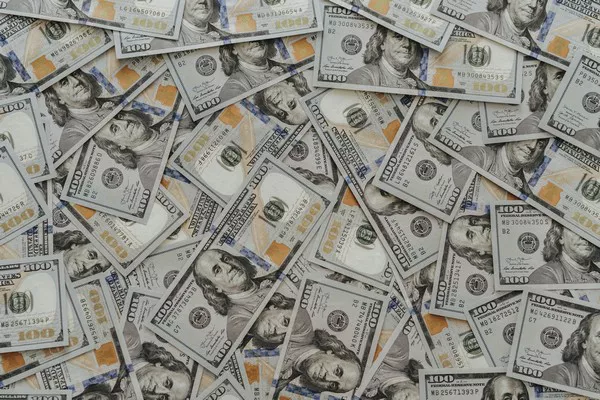The Federal Reserve plays a crucial role in shaping the economic landscape of the United States. One of the primary tools at its disposal is the ability to adjust interest rates. The decision to raise interest rates is a complex one, influenced by a myriad of economic factors. As we stand at the precipice of a potential interest rate hike, it is essential to examine the possible consequences and implications for various stakeholders.
Historical Context
Before delving into the potential impacts, it is important to understand the historical context of interest rate hikes by the Federal Reserve. Traditionally, the Fed adjusts interest rates to manage inflation and employment. When the economy is booming and inflation is a concern, the Fed may raise rates to cool down spending. Conversely, during economic downturns, lowering interest rates stimulates borrowing and spending to spur economic activity.
The Current Economic Landscape
As of the current economic landscape, the United States has experienced a period of recovery from the economic downturn triggered by the COVID-19 pandemic. Unemployment rates have declined, and inflationary pressures have become more pronounced. In such a scenario, the Federal Reserve may consider raising interest rates to prevent the economy from overheating.
Potential Impact on Borrowing Costs
One of the most direct consequences of a Federal Reserve interest rate hike is the impact on borrowing costs. When interest rates rise, the cost of borrowing increases for businesses and individuals alike. This can have profound effects on consumer spending, business investment, and the overall health of the credit market.
For consumers, higher interest rates mean increased costs on variable-rate loans such as credit cards and adjustable-rate mortgages. Homebuyers might face higher mortgage rates, potentially cooling down the housing market. The increased cost of borrowing may also affect consumer confidence, leading to reduced spending, which, in turn, could slow down economic growth.
Businesses, especially small and medium-sized enterprises (SMEs), may face challenges in accessing affordable credit. Higher interest rates can lead to increased debt servicing costs, impacting profitability and potentially stifling investment and expansion plans. Large corporations may also reconsider borrowing for capital expenditures, leading to a broader economic slowdown.
Impact on Financial Markets
The financial markets are highly sensitive to changes in interest rates. A Federal Reserve interest rate hike can trigger significant volatility in stock and bond markets. Investors often reallocate their portfolios in response to changes in interest rates, seeking higher returns in different asset classes.
Stock prices may experience fluctuations as investors reassess the present value of future corporate earnings in the context of higher interest rates. Bonds, especially those with fixed interest rates, may see a decline in value as newly issued bonds offer higher yields. This can have a cascading effect on pension funds, investment portfolios, and other financial instruments tied to interest rates.
Global Implications
The impact of a Federal Reserve interest rate hike extends beyond U.S. borders. The interconnectedness of the global economy means that changes in the U.S. monetary policy can reverberate around the world. Emerging market economies, in particular, may face challenges as higher U.S. interest rates attract capital away from riskier assets.
Countries with high levels of external debt denominated in U.S. dollars may experience increased debt-servicing costs, potentially leading to financial instability. Exchange rates may also be affected, impacting international trade and the competitiveness of export-oriented economies.
Inflationary Pressures and Economic Outlook
While the primary goal of a Federal Reserve interest rate hike is often to curb inflationary pressures, the impact on inflation itself is nuanced. In the short term, higher interest rates can contribute to lower spending and investment, putting downward pressure on prices. However, in the longer term, the reduced economic activity may lead to supply chain constraints, potentially pushing prices higher.
The Federal Reserve faces the delicate task of striking a balance between preventing runaway inflation and ensuring sustained economic growth. A mistimed or overly aggressive approach to interest rate hikes could risk derailing the recovery and pushing the economy into a slowdown or recession.
Policy Response and Communication
The Federal Reserve’s communication and guidance regarding interest rate decisions are crucial in managing market expectations and mitigating potential disruptions. Transparent and clear communication from the Fed can help market participants anticipate and adjust to changes in monetary policy.
In addition to interest rate decisions, the Fed may employ other tools, such as forward guidance and quantitative easing, to influence economic conditions. The effectiveness of these measures depends not only on the policy itself but also on the market’s perception of the Fed’s commitment to its goals.
See Also: What Makes The Federal Reserve So Unique? A Full Guide
Conclusion
As we contemplate the potential scenario of a Federal Reserve interest rate hike, it is imperative to recognize the multifaceted impact on various aspects of the economy. From borrowing costs to financial market dynamics and global repercussions, the consequences are far-reaching. The Federal Reserve must navigate these economic waters with precision, considering the delicate balance between controlling inflation and fostering sustained economic growth.
Market participants, businesses, and policymakers alike should closely monitor the Fed’s decisions and adapt their strategies accordingly. In a world of interconnected economies, the repercussions of U.S. monetary policy decisions extend beyond national borders, emphasizing the need for a coordinated and informed global response. As we move forward, the resilience of the economy will be tested, and prudent decision-making will be paramount in shaping a stable and prosperous future.


